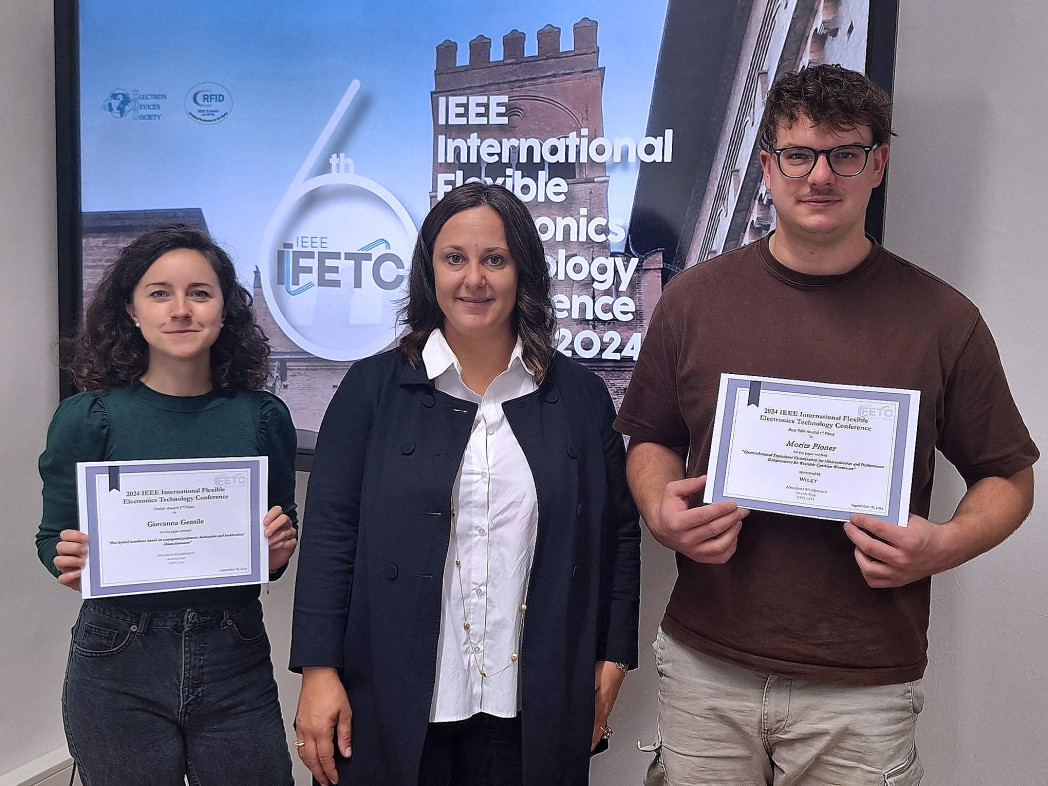unibz students awarded at the IEEE IFETC 2024 Conference in Bologna
By Giulia Maria Marchetti

Imagine a world where your clothes can directly monitor your physical activity, your medical devices can comfortably follow you wherever you go and bendable electronic devices, from solar panels to the screen of your TV surround you. Welcome to the world of flexible electronics! This fascinating topic has brought together experts and stakeholders from various fields, including chemists, materials scientists, physicists, biologists, and mechanical and electrical engineers, in Bologna for the 6th IEEE IFETC (International Flexible Electronics Technology Conference). Here Moritz Ploner and Giovanna Gentile, from the Sensing Technologies Lab of the unibz Faculty of Engineering, won two out of four of the prizes dedicated to students.
Moritz Ploner, winner of the first-place student paper prize, captivated the audience with his presentation on the design of flexible sensors integrated into wearable bracelets for cytokine detection in sweat. This technology holds particular promise for the e-health sector, as altered cytokine levels are associated with diseases such as sepsis, cancer, and COVID-19. This work is part of his PhD thesis and is co-financed by Empatica, a company engaged in developing medical wearables and digital biomarkers.
Giovanna Gentile received the second-place student poster award for her doctoral research, in collaboration with Eurac, which focuses on the development of a biocompatible light-sensitive interface. Once exposed to light, this material generates a current that can modulate the activity of neurons in vitro. This research is especially valuable for understanding neuronal function and shows potential as a tool for addressing pathologies involving altered neuronal activity.
“I am particularly pleased with this result, first and foremost for my students,” says Luisa Petti, professor of Electronics at unibz’s Faculty of Engineering and vice-head of the Sensing Technologies Lab. “This recognition also highlights the value of the research we conduct in our lab. Moreover, it is particularly rewarding considering that I organized the entire conference together with Prof. Niels Benson from the University of Duisburg-Essen. This year, we attracted 220 participants, nearly three times the usual attendance at this event,” Petti added.
Hugo Oliveira, a current PhD student in Advanced-Systems Engineering at unibz supervised by Prof. Niko Münzenrieder, was also awarded the second-place student paper prize for work conducted during his current position at the University of Freiburg in collaboration with unibz, further showcasing the relevance and recognition of the cutting-edge research being carried out at our university.
Related people: Luisa Petti